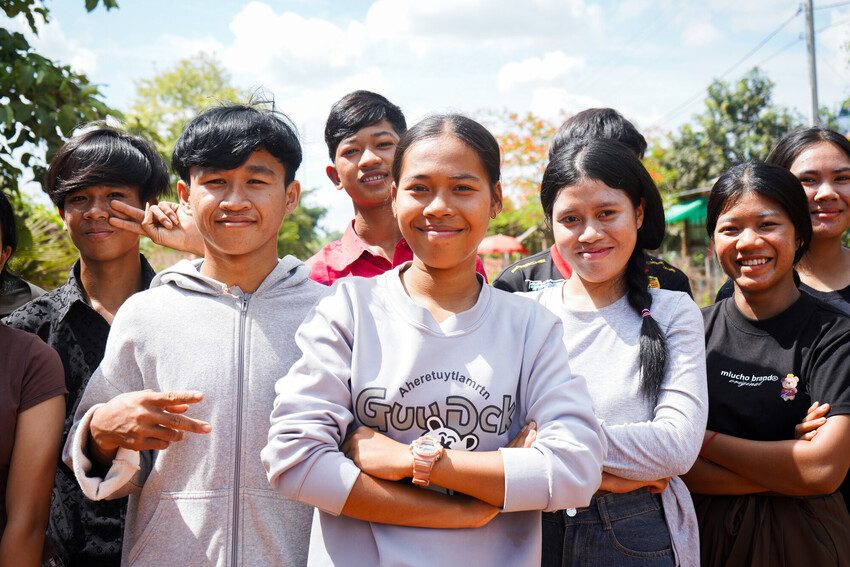Let me be a child, not a wife
Girls’ experiences of living through child marriage
Hear the voices of 251 girls and young women from 15 countries as they share their personal stories of child marriage and its lasting impact.
About this research
In one of the largest studies of its kind, we spoke to more than 250 girls aged 15 to 24 who married as children, as well as girl activists working to eradicate child marriage.
The research is based on in-depth detailed conversations with those girls and young women across 15 countries: Bangladesh, Cambodia, Indonesia, Nepal, Ethiopia, Mozambique, Uganda, Zambia, Colombia, Dominican Republic, Guatemala, Ecuador, Nigeria, Niger, and Togo.
Together, their experiences give a unique window into married girls’ everyday lives, the harms child marriage can cause for girls and their communities, and what needs to be done to eradicate it.
As the girls taking part in the study talk to us, we begin to understand the price they are paying: we hear about their relationships with husbands and in-laws, often characterised by violence, about the domestic drudgery of their daily lives, the difficulty of staying in school, the loss of control over all aspects of their lives, including if and when to have children.
For numerous girls, policy and legal reforms restricting child marriage have meant very little – many are still trapped. With much of the emphasis around child marriage focused on stopping it, girls, once married or in a relationship, tend to disappear. They mustn’t be allowed to.
By standing with them, together, we can break down the deep-rooted beliefs and social norms that lead to child marriage, so that all girls choose their own future.
12 million girls are married before the age of 18 each year – 1 every 3 seconds. 480,000 are under 15.
Key findings
The key findings from the research include:
- The vulnerability of girls is a key theme.
- Among the girls we spoke to, rates of divorce or separation are high.
- Many girls talked about marrying for love.
- Child marriage is increasingly shaped by digital relationships.
- A number of girls in the study identified as marginalised.
- Child marriage laws are failing to protect girls.
- Gender norms which prioritise the roles of wife and mother are found in many communities.
- Combined with social and gender norms, poverty is the most pressing cause of child marriage.
- Once married, girls are largely isolated at home.
- Some girls felt intimidated to challenge their husbands’ authority.
- Few of the girls we spoke with continued their education though many would have liked to.
- Girls married for different reasons but in most cases free and informed consent was absent.
- Not a single interviewee said they would want their own children to enter a child marriage or union.
- Access to contraception is a contentious issue for many married girls.
“[I got married] because of what he [my husband] promised me, I trusted him, and I love him. I need better living conditions because my family lives in poverty and does not have enough money to pay for our needs… I therefore believed that if I got married, I could provide for my family…The opposite is actually true; by marrying young, I hurt them instead.”
Simegn*, 19, Ethiopia (name changed to ensure anonymity)

#EndChildMarriage
Through the #EndChildMarriage campaign, we’re standing with girls to dismantle the harmful norms that force them into child marriages and deny them their childhood.
5 recommendations to end child marriage
Emerging from the research are practical suggestions from married girls which they say would transform their lives:






Download the report
Full report
English
6.18 mb
French
5.96 mb
Spanish
5.95 mb
Executive summary
English
1.53 mb
French
1.49 mb
Spanish
1.47 mb
Technical report
English
6.80 mb


